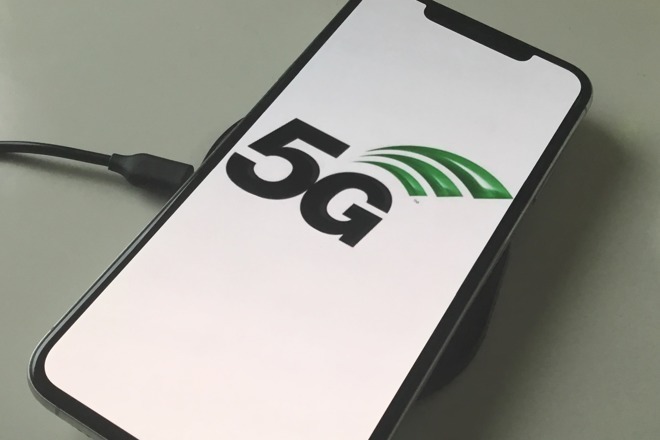Apple may split its 5G 'iPhone 12' into two launches
A financial analyst claims that Apple will divide its 5G launches into one for the slower sub-6GHz "iPhone 12" in September, and one for the faster mmWave models in December or January 2021.

While Apple reportedly remains on track to release a 5G capable "iPhone 12" later this year, a new report from financial analysis firm Susquehanna claims that the launch will be in two parts. At the regular September unveiling, analyst Mehdi Hosseini says Apple will release only phones that use the slower sub-6GHz variant of 5G.
Then further iPhones with the faster mmWave 5G may launch in December this year or January of 2021.
"The delay in the launch," says Hosseini in a note seen by StreetInsider, "stems from Apple's decision to in-source the Antenna-in-Package (AiP) modules instead of purchasing from the third party."
Apple has previously long been reported to be developing its own 5G modem. Initially reports claimed it would be ready by 2025, then estimates came down to 2022.
Following the recent settlement of legal disputes between the two companies, Qualcomm has reportedly been developing 5G "as fast as we can." At the same time, Intel withdrew from 5G development and Apple subsequently bought that firm's modem business.
Susquehenna's Hosseini expects Apple to make 52 million of the sub-6GHz iPhones and then 8 million of the mmWave version.
The same report says that Apple will continue to use LCD for one of the sub-6GHz iPhones rather than switching to OLED for the whole range.

While Apple reportedly remains on track to release a 5G capable "iPhone 12" later this year, a new report from financial analysis firm Susquehanna claims that the launch will be in two parts. At the regular September unveiling, analyst Mehdi Hosseini says Apple will release only phones that use the slower sub-6GHz variant of 5G.
Then further iPhones with the faster mmWave 5G may launch in December this year or January of 2021.
"The delay in the launch," says Hosseini in a note seen by StreetInsider, "stems from Apple's decision to in-source the Antenna-in-Package (AiP) modules instead of purchasing from the third party."
Apple has previously long been reported to be developing its own 5G modem. Initially reports claimed it would be ready by 2025, then estimates came down to 2022.
Following the recent settlement of legal disputes between the two companies, Qualcomm has reportedly been developing 5G "as fast as we can." At the same time, Intel withdrew from 5G development and Apple subsequently bought that firm's modem business.
Susquehenna's Hosseini expects Apple to make 52 million of the sub-6GHz iPhones and then 8 million of the mmWave version.
The same report says that Apple will continue to use LCD for one of the sub-6GHz iPhones rather than switching to OLED for the whole range.

Comments
/s
Seems like bad news for Apple in all scenarios. Seems unlikely they wouldn't think through the scenarios. Apple doesn't generally do stupid things.
Funny you say they when I was in FL over the holiday I saw a 5G popup next to the AT&T network status on the top of the phone and ask me kid what gives and he said its some weird thing that AT&T is going in the FL area, you are not get 5G it is a variant of LTE. But it was odd that phone would even display 5G, but LTE is really 5G since 4G was out before LTE came out. I know they screwed up the whole naming convention so it not really 5G.
I listed to a podcast on the way into work this morning and the guy they were interviewing said his plan for CES was to look to see if he could find products that genuinely needed 5G and wouldn't work on 4G/LTE. Kinda telling... He also made a point of stating that 5G is not just one technology, it's a bunch of them.
Second, I don’t see Apple choosing to sell LCD iPhones to T-Mobile, AT&T, Sprint customers while selling OLED iPhones to Verizon customers especially since Verizon’s 5G will not be as widespread as the others 5G.
So why buy it now, when you'll likely retire this device before that future really gets here? Not important to most people; surfing faster out in an open field just isn't that big of a deal.
https://arstechnica.com/information-technology/2019/04/millimeter-wave-5g-isnt-for-widespread-coverage-verizon-admits/
The main argument I've heard for 5G is "because it's the future." From everything I've read, 5G is more important for other uses besides smartphones. The one benefit I can see for smartphones is the higher number of connections allowed per cellular node which will likely become more important as more devices connect to the network and in highly congested areas like sports arenas.